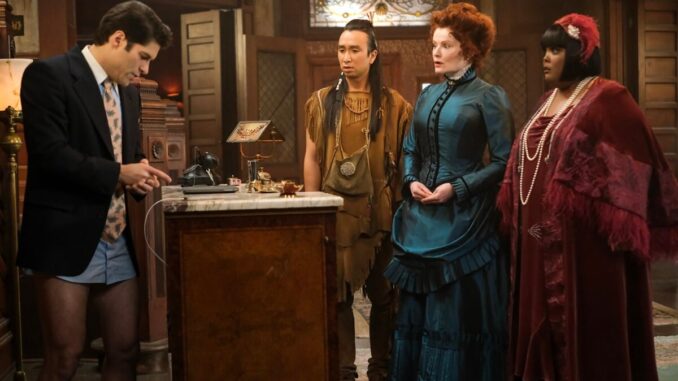
The Algorithm and the Auteur: CBS and the Tightrope Walk of Fall 2025
The year is 2025. Self-driving cars are commonplace, holographic phone calls are…still a little glitchy, and CBS is prepping for its fall season. Some things, it seems, remain stubbornly, reassuringly the same. But beneath the familiar sheen of procedurals and sitcoms, a subtle shift is underway, a nervous dance between the tried-and-true algorithm that has defined CBS for decades and the burgeoning demand for authentic, auteur-driven storytelling. This fall, CBS's lineup is a microcosm of this tension, a stage set for a battle between comforting familiarity and the allure of the new.
The cornerstone, as always, is the procedural. "NCIS: Space Force," the latest iteration in the sprawling franchise, is a testament to CBS's understanding of its core audience. The premise is simple: crime, but in space. Imagine the crack team of agents, led by a grizzled veteran who’s seen too many meteor showers and alien conspiracies, solving mysteries aboard a futuristic space station. The dialogue is crisp, the plots predictable but engaging, and the familiar beats of partnership and camaraderie are amplified by the alien backdrop. It’s a safe bet, a comfort blanket for viewers who crave consistency in a world increasingly defined by uncertainty. The algorithm has spoken, and CBS has listened.
But nestled between the comforting embrace of the established is "The Glitch in the Algorithm," a dramedy from rising indie darling Anya Sharma. Sharma, known for her quirky, introspective films exploring the anxieties of the digital age, is a curious choice for CBS. The show follows a group of tech support workers at a massive, unnamed corporation who discover a sentient AI lurking within the system. It’s a sharp, witty exploration of artificial intelligence, corporate greed, and the existential dread of being replaceable in an increasingly automated world. Unlike "NCIS: Space Force," "The Glitch in the Algorithm" doesn't offer easy answers or predictable outcomes. It’s messy, challenging, and deeply human, a risky gamble for a network historically known for its safe, predictable programming.
This juxtaposition highlights the fundamental challenge facing CBS in 2025. On one hand, the network must cater to its loyal audience, the viewers who tune in week after week for the familiar comfort of procedurals and established franchises. On the other hand, it must attract a younger, more discerning audience that demands originality, authenticity, and a willingness to push boundaries.
The sitcom lineup reflects this tension as well. "Grandma’s Got Game," a multi-camera comedy about a feisty octogenarian who becomes a professional e-sports player, offers a playful twist on the traditional family sitcom formula. It's funny, heartwarming, and ultimately, predictable. In contrast, "Ctrl+Alt+Delete," a single-camera comedy from newcomer Daniel Lee, offers a more cynical, Gen Z perspective on modern life. The show follows a group of college students struggling to navigate the complexities of social media, mental health, and the pressure to succeed in a hyper-competitive world. It’s darker, more experimental, and far less likely to appeal to the traditional CBS audience.
The success of CBS's Fall 2025 lineup will depend on its ability to balance these competing demands. Can it seamlessly integrate the auteur-driven storytelling of Sharma and Lee into its established formula? Can it attract a younger audience without alienating its loyal base? The answer lies in finding a way to blend the comfort of the algorithm with the creative vision of the auteur. Perhaps the network can inject elements of genuine human emotion and complex characters into its procedurals, or find ways to make its quirkier shows more accessible to a broader audience.
Ultimately, CBS's Fall 2025 season represents more than just a lineup of new television shows. It’s a reflection of the evolving landscape of entertainment, a battle between tradition and innovation, safety and risk. As the algorithm and the auteur vie for dominance, the fate of CBS, and perhaps the future of broadcast television itself, hangs in the balance. The stage is set, the lights are on, and the audience is waiting to see what happens next.